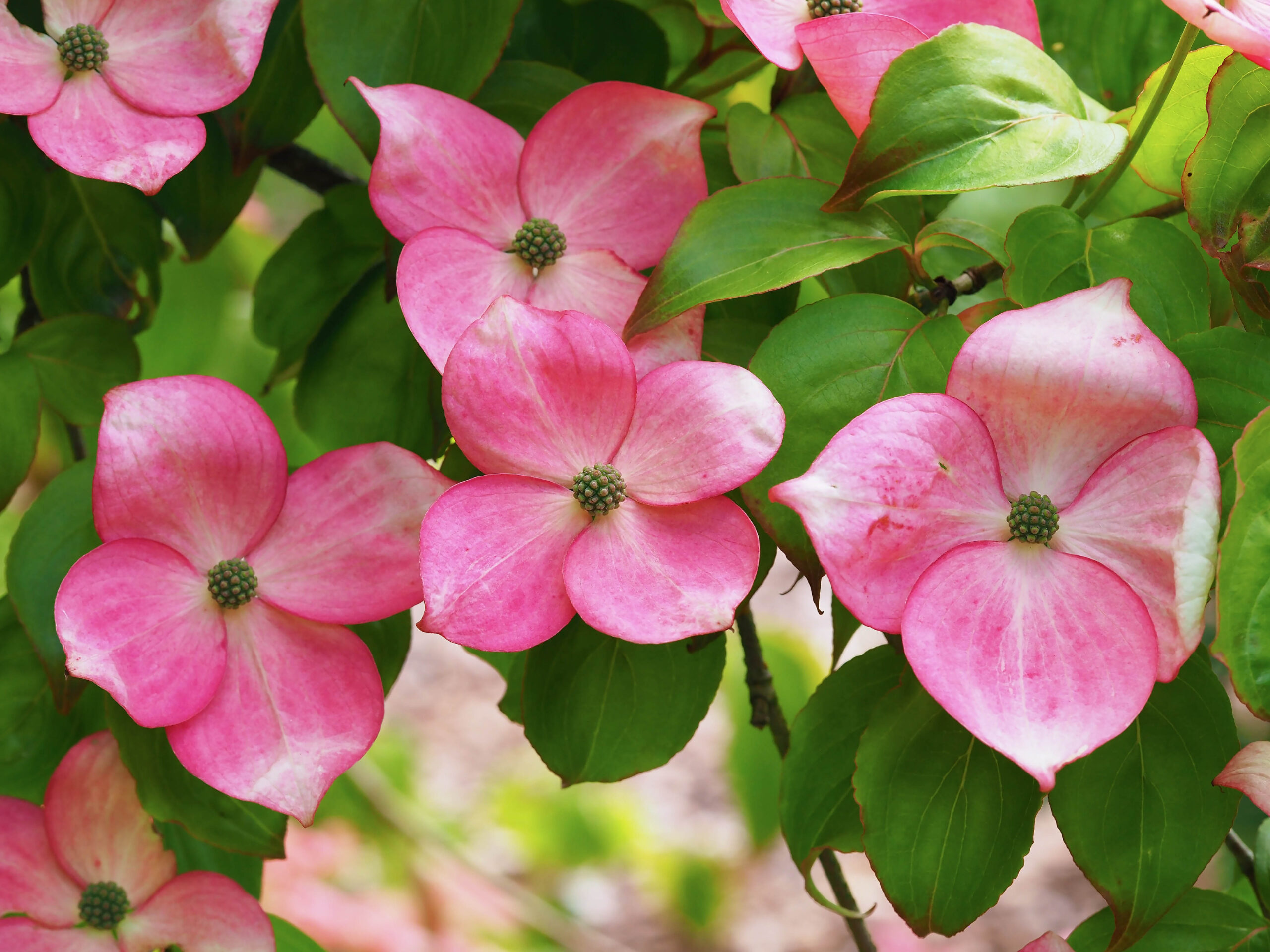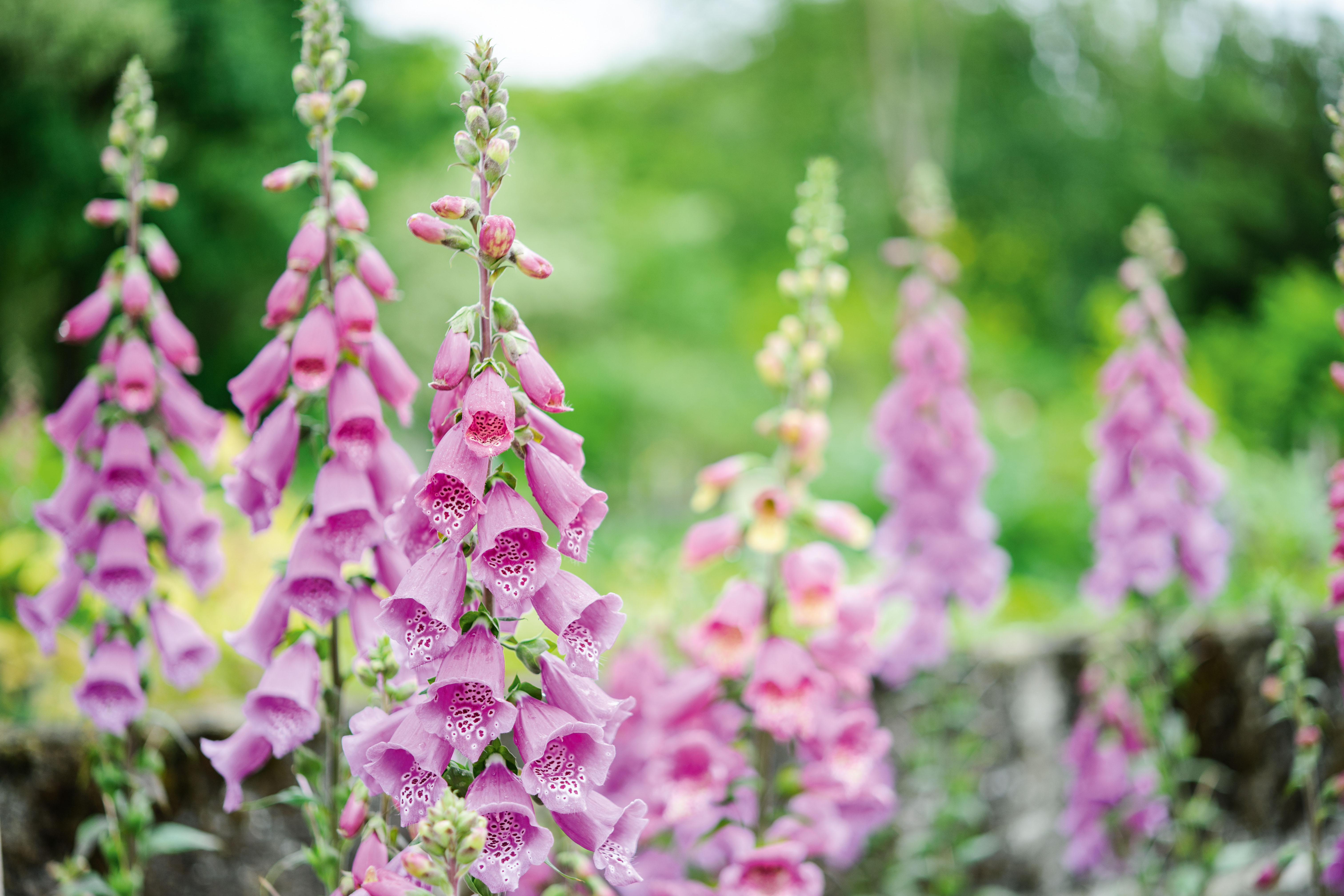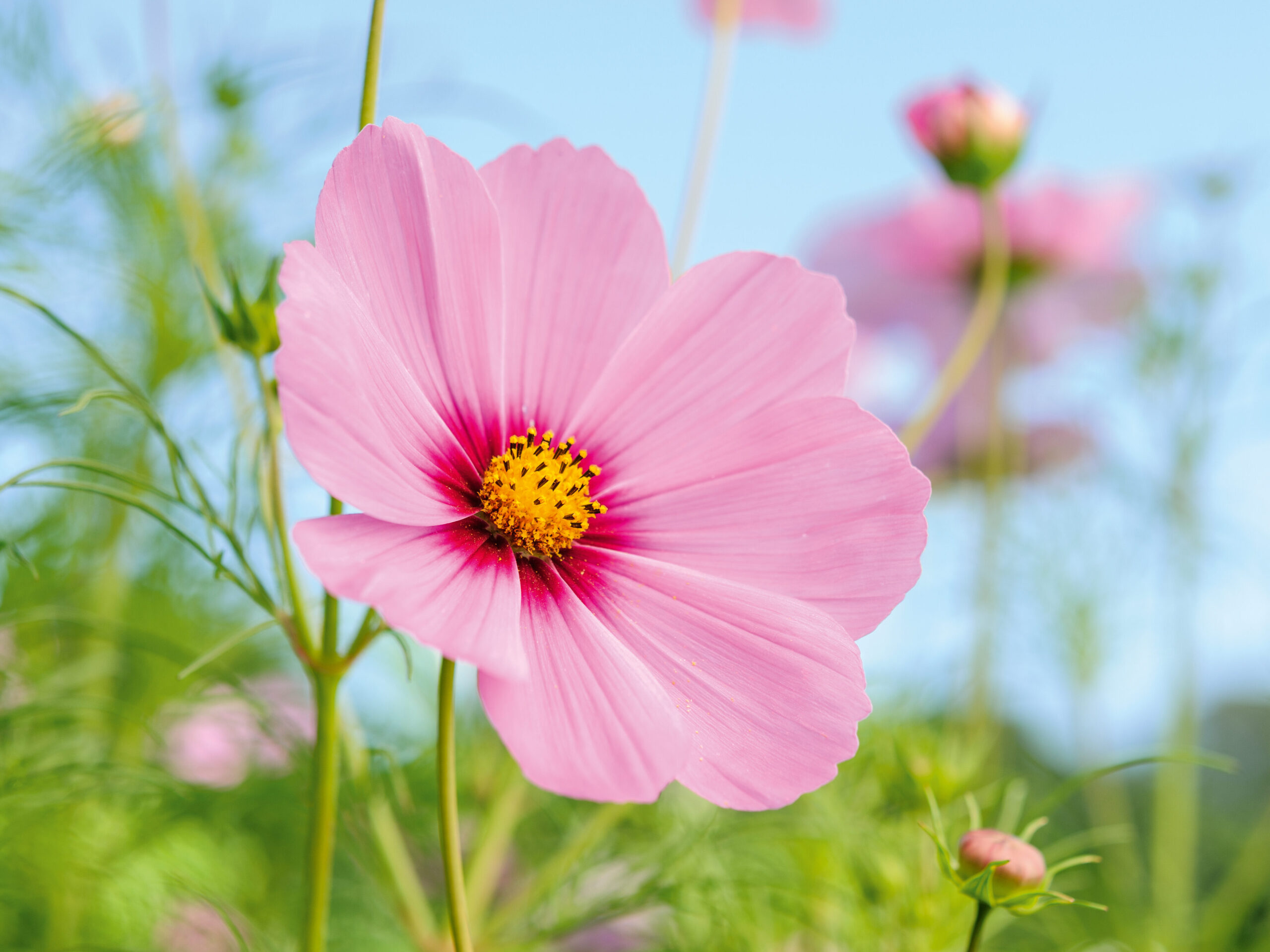From the palest china pink to vibrant magenta, here are 20 pretty pink blooms for your garden in every season.
Pink is an indispensible colour in the garden, combining beautifully with blue, purple and white for a ‘cool’ colour scheme, but also offering a bright contrast to zingier and hotter colours such as orange, yellow and red.
There are many beautiful pink flowers to grow, throughout all of the seasons, from hellebores and cyclamen in winter to cherry and crab apple blossom in spring and cosmos, Japanese anemones, salvias and dahlias from summer through to autumn.
Here are some of the best pink flowers for your garden.
The best pink flowers to grow
Cyclamen
Cyclamen are a welcome sight in the colder months when little else is in flower. Cyclamen coum comes in shades of the lightest pink through to magenta (as well as white) and will happily gently spread in your garden. Grow under deciduous shrubs in the border or under trees. Read our expert guide to growing cyclamen.
Viburnum

Viburnums are shrubs or small trees that flower mostly in winter and spring. The flowers of many, such as Viburnum bodnantense ‘Charles Lamont’ and Viburnum bodnantense Dawn’ have a delightful scent in winter. Read our viburnum growing guide.
Heather

Evergreen, easy to grow, winter heathers not only provide pretty flowers in midwinter but are also are bee-friendly plants. They are a lifeline for bumblebees and solitary bees that emerge in mild spells in winter and early spring.
Hellebore

Hellebores are incredibly useful plants in the garden – they flower for months on end, from midwinter to late spring and have attractive, often evergreen foliage. As well as myriad shades of pink, their flowers can be pure white, pale lemon yellow and green, or even purple-black. Hellebores look beautiful planted with other late winter and early spring plants, such as cyclamen, snowdrops, narcissi, witch hazel and daphnes. They are often still out when tulips begin to flower in April and May.
Read our expert guide to growing hellebores.
Camellia

Camellias brighten up our gardens in winter and throughout spring. They come in a range of flower forms, sizes and colours and some are even scented. They also have glossy, evergreen leaves. Read our guide to growing camellias.
Spring blossom

There is nothing quite as uplifting as a cherry blossom tree or crab apple smothered in blossom in spring, silhouetted against a blue spring sky and underplanted with spring bulbs. They’re attractive to pollinators, too. Read our expert guides to the best cherry blossom trees and the best crab apple trees.
Peony

From the palest blush pink to deep burgundy, peonies offer flowers in a myriad of pink hues. They are a must-have in the late spring garden and make beautiful cut flowers. Discover the best peonies for your garden.
Flowering dogwood

There are few more breathtaking sights than a flowering dogwood in full bloom in early summer. The flowers of these shrubs or small trees, in a range of pinks, are actually bracts surrounding the smaller, less significant flowers. Flowering dogwoods make splendid flowering trees for small gardens. Read our guide to the best flowering dogwoods.
Foxglove

Foxgloves bring height and structure to a border in early summer and look beautiful in a cottage garden, traditional herbaceous border or a more contemporary scheme. They can be biennial or perennial, and are much loved by bees. Once you have biennial foxgloves in your garden, you will never need to plant them again, as they self-seed readily. Read our expert guide to growing foxgloves.
Clematis

There is a clematis in flower in almost every month of the year, including the large flowered types that flower in early summer and the more subtle, nodding flowers of those that flower later in the season. Many of them come in shades of pink, including the lovely Clematis ‘Princess Diana’, shown here. Find out everything you need to know about pruning clematis.
Roses

Whether you’re looking for a rambler, climber or shrub type, there are masses of pink roses to choose from, from the china pink ‘Olivia Rose Austin’ to the deep magenta ‘Falstaff’. Rosa ‘Gertrude Jekyll’ is a perennial favourite, with bright pink, scented flowers. It’s a shrub rose, but can be encouraged to climb.
Dianthus

The genus Dianthus includes carnations and sweet williams as well as pinks, which is thought to refer to the pinking around the edges of the flower’s petals as opposed to the colour – although pinks are often pink. Dianthus cruentus, shown here, has a deep pink flower on a tall stem and is ideal for a well drained, sunny spot in the garden. Read our expert guide to growing dianthus.
Hardy geranium

Hardy geraniums are indispensable plants for the front of a border, and many come in shades of pink, from pale china pink to deep magenta. Most flower in early summer, but if cut them back hard after flowering (a technique known as the Hampton Hack), many will flower again later in the summer. Here are 21 of the best hardy geraniums.
Penstemon

Many penstemons start flowering in midsummer and often carry on until the first frosts, making them extremely useful plants for the middle of a sunny border. The flowers range from pale pink to deep magenta. Find out how to grow penstemons.
Cosmos

Cosmos flower from summer to autumn and come in range of pinks, from pale china pink to deep magenta and cherry red, as well as white and pale yellow. These half hardy annuals are easy to grow from seed and make excellent cut flowers. Read our guide to growing cosmos.
Hydrangea

Hydrangeas are beautiful shrubs that bear huge, remarkable flowerheads in a range of pretty colours, including pale and deep pink. Many Hydrangea paniculata varieties start out white, turning pink with age. Find out how to grow hydrangeas.
Salvia

Salvias are also incredibly long flowering, from summer to the first frosts – some are shrubby, others are tender perennials. Salvias come in a myriad range of colours, including a range of pinks, from pale pink to the neon-bright Salvia microphylla ‘Cerro Potosi’. Read our guide to the best salvias to grow.
Echinacea

Echinaceas are beautiful plants for mid to late summer – they have petals in a range of pinks, with dark cones at their centre. They are popular prairie plants. Echinacea pallida has pale pink, drooping petals arranged around an eye-catching cone.
Dahlia

Dahlias are a much loved highlight of the late summer garden, and if deadheaded or cut for the vase regularly, they will produce hundreds of flowers until after the first frosts. They come in an incredible range of colours, including every shade of pink you think of, as well as flower shapes. Read our guide to growing dahlias.
Japanese anemone

Anemones can be both early-flowering bulbs and summer and autumn blooms. Japanese anemones flower for a long time, from mid to late summer and continuing well into autumn. Choose from pale or deep pink cultivars. Find out how to grow anemones.